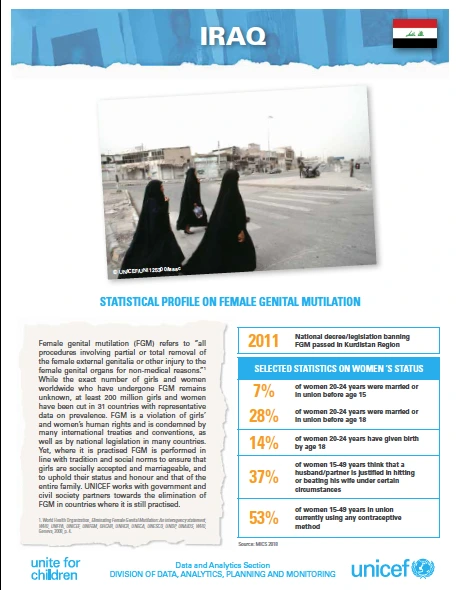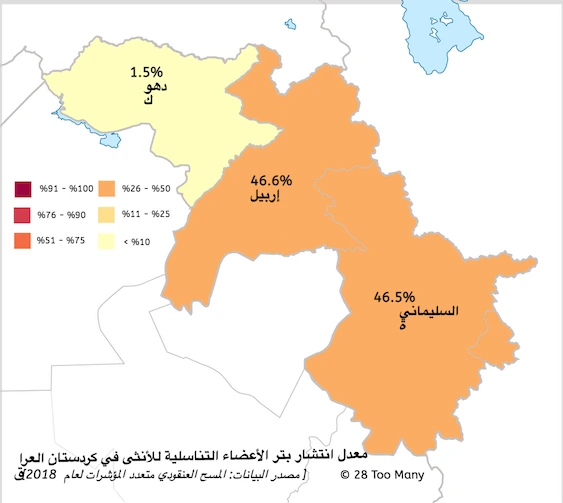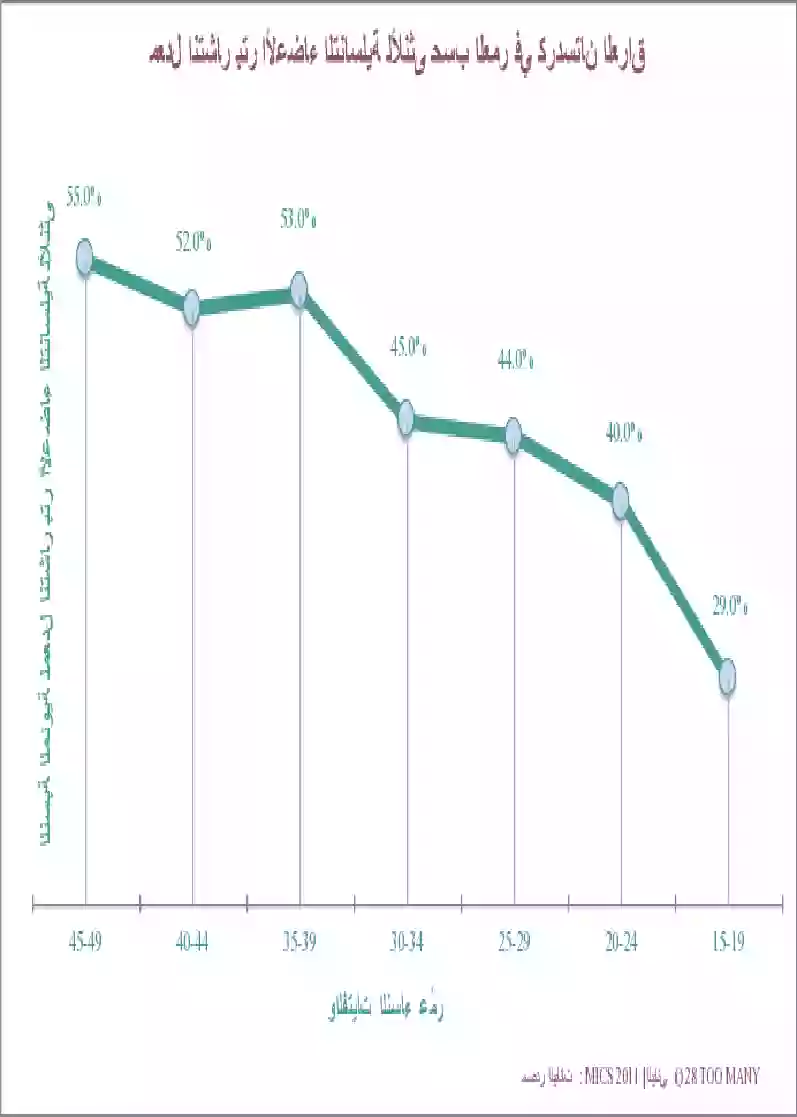Home | Research & Resources | Iraq (Kurdistan Region)
KEY FINDINGS
The prevalence of FGM/C among women aged 15–49 in Iraqi Kurdistan is 37.5%.
93.6% of women aged 15–49 who have heard of FGM believe that it should be discontinued.
Geography
Prevalence is highest in the south and east of Kurdistan
Age
Most girls are cut between 0 and 12 years; the average age is 4–5 years
Type
Type 1 FGM/C is most commonly performed
Agent
Around half of FGM/C cases are carried out by traditional birth attendants
Distribution of FGM/C across Iraqi Kurdistan
Two of Kurdistan’s governorates – Suleimaniya and Erbil – have an FGM/C prevalence of more than 45%. These are the most southern and eastern governorates of Kurdistan. The third governorate of Dohuk in the north has a low FGM/C prevalence of 1.5%.
There is little difference between the FGM/C prevalence in urban (43%) and rural (42%) areas. Women with no formal or only basic educations are more likely to have had FGM/C (55%) than women with secondary or higher levels of education (33%).
Women in the lowest wealth quintile are more likely to have been cut (57%) than those in the highest wealth quintile (26%).
86.1% of women have heard of FGM/C. Although the last MICS survey stated that 93.6% of women who have heard of FGM/C believe it should be stopped, attitudes appear to vary: there is greater support for the practice among those with lower levels of education. In the majority of cases, it is reported that mothers make the decisions around FGM/C, and in more than half of cases religion is cited as the reason for the practice.
Trends in FGM Prevalence in Iraqi Kurdistan
Measurements of FGM/C prevalence prior to 2013 were restricted to women who had been married at any time, meaning that a direct comparison cannot be made.
However, breaking down the most recent data by age group shows that the prevalence among women aged 45–49 is 55%, while among the youngest age group this has fallen to 29%. Despite the fact that a small proportion of women may be cut after the age of 15, the data suggests a trend towards less frequent cutting among younger women.
FGM/C Legislation in Iraqi Kurdistan
FGM/C was criminalised by Kurdish authorities under the Domestic Violence Act in 2011.
Prison sentences and/or fines are included for FGM/C, but enforcement is reportedly weak.
Development Indicators
Population
Approximately six million
Infant mortality
23 deaths per 1,000 live births (2019)
Maternal mortality
79 deaths per 100,000 live births (entirety of Iraq, 2017)
SDG Gender Index
Ranked 122 out of 144 countries with a score of 51.2% (2022)


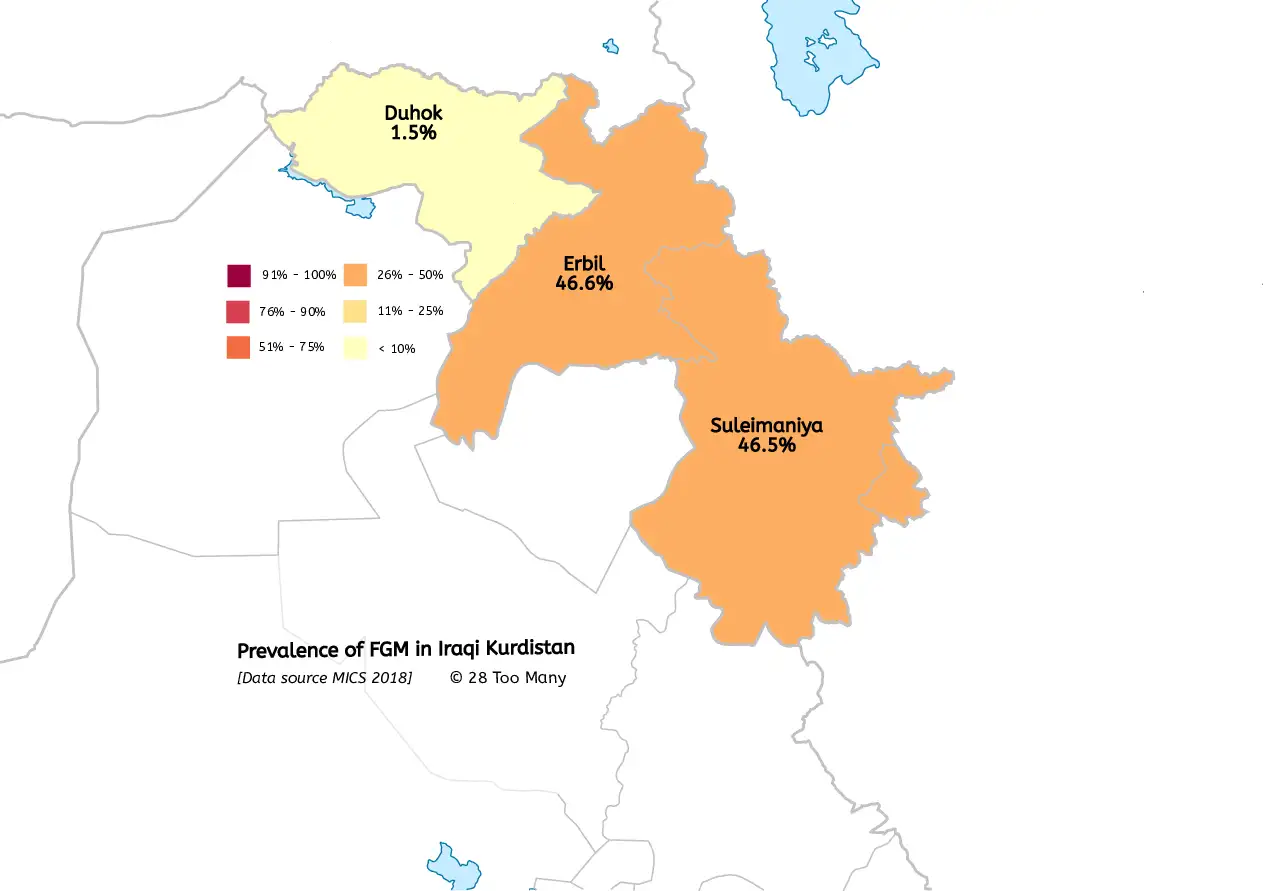
.webp)
_cover.webp)
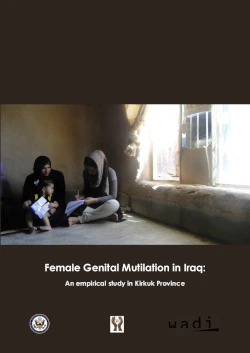
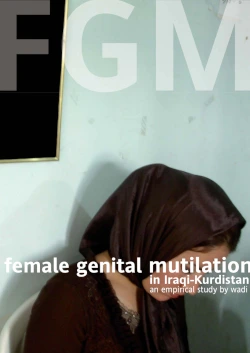
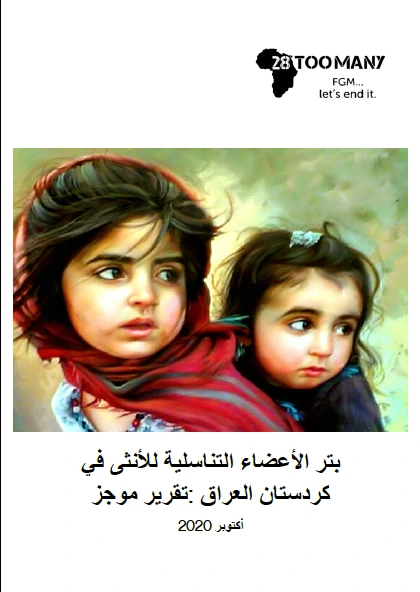
_sorani_cover.webp)
